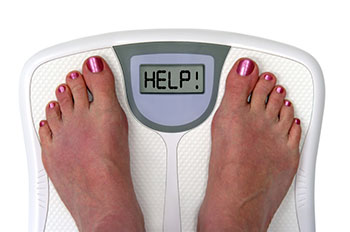More Health and Nutrition Bites
Related
Yes, fad diets work, but....
One of the concerns with diets that drastically restrict the amount of fat, protein, or carbohydrates is the lack of evidence regarding their long-term effects on one's health, especially cholesterol scores. Researchers at Stanford University recently released a study comparing the effects of several popular diets (Atkins, the Zone, and Ornish) with the more traditionally recommended diet pattern of low-fat, high-carbohydrate, and reduced calories (JAMA 2007;297(9):969-977).
Health & Nutrition Bites
Get the latest health and diet news - along with what you can do about it - sent to your Inbox once a week. Get Dr. Gourmet's Health and Nutrition Bites sent to you via email. Sign up now!
More poorly designed diet research: low-fat vs. low-carb diets

The media has been all over today's study from the Annals of Internal Medicine (doi:10.7326/M14-0180), for the most part acting as if this were the last word on healthy eating. Proponents of the Atkins Diet are understandably celebrating, as the results of the study as published are that a low-carbohydrate diet increases weight loss and improves cholesterol scores more than a low-fat diet.
The authors recruited 148 adult men and women who were clinically obese (with a Body Mass Index over 30), who were free from cardiovascular disease, type 2 diabetes, or kidney disease, had not had weight-loss surgery, and had maintained a stable weight for the 6 months leading up to the start of the study. Height, weight, cholesterol scores, body fat, and other demographic and clinical scores were recorded at the start of the study.
The participants were randomly assigned to one of two styles of eating. (I say "styles of eating" because they were not instructed to reduce their caloric intake.) Half were instructed on what the researchers called a low-fat diet, and the other half were instructed to follow a low-carbohydrate diet.
After one year those following a low-carb diet lost more weight than those on a low-fat diet, and their HDL cholesterol scores (the good cholesterol) improved while their total cholesterol and triglycerides remained about the same.
Looking pretty bad for a low-fat diet, isn't it? Here's what the media coverage doesn't tell you: this is an extremely poorly-designed study.
Those on a low-fat diet were instructed to keep their fat intake under 30% of their daily caloric intake, with less than 7% of that being saturated fat. That's NOT a low-fat diet: 30% of daily calories from fat is about the same as the usual American diet. A truly low-fat diet is more often 10% of calories from fat or less. They were also instructed to keep their carbohydrate intake under 55% of calories.
Those on a low-carb diet, by contrast, were instructed to limit their digestible carbohydrate intake to less than 40 grams per day. That is a big change from the typical American diet, and it shows: those on a low-carb diet ate fewer calories than those on the low-fat diet. Of course they lost more weight!
Tracking the participants' adherence to the diets was limited to dietary recalls done once every three months over the course of the study. Each dietary recall was for two days: a weekday and a weekend day. Dietary recalls (in which a study participant reports what they have eaten over the last 24 hours) are notoriously unreliable. Do you remember everything you ate yesterday? What about last weekend?
40 grams of carbohydrate is tremendously restrictive. That adds up to about 3 slices of whole wheat bread per day. The problem is that you don’t have to give up great food to be healthier and much better designed research than this study proves that. In a study in the New England Journal of Medicine (http://www.nejm.org/doi/full/10.1056/NEJMoa0708681) showed that a Mediterranean diet was at least the equal of a low-carbohydrate diet for weight loss and, guess what, you get to eat real food.
In that study the participants in the Mediterranean diet group actually reduced their calories less than those in the low-carbohydrate group and they lost the same amount of weight. There were subtle but not really significant differences in their blood sugars (with low-carb being better) and cholesterol (Mediterranean diet better). The take home is that with a Mediterranean diet, eating real food, you can lose weight eating more food than a low-carbohydrate diet.
We have known for a long time (before this new study was started, in fact) that low-fat and low-carbohydrate diets are silly. Yet people persist in proving that they are silly. I am not sure why.
What this means for you
Quite simply: ignore the hype and ignore this new study. An unsustainable diet (low-carb) versus a disproven diet (low-fat) equals bad science on its face. Add to that poor quality study design and you've got something that does nothing but add to the existing health and dietary misinformation.
You can - and should - eat great food that's great for you, and the Mediterranean Diet allows you to do just that. Even more importantly, you can do it fairly easily over the long term.
First posted: September 3, 2014
